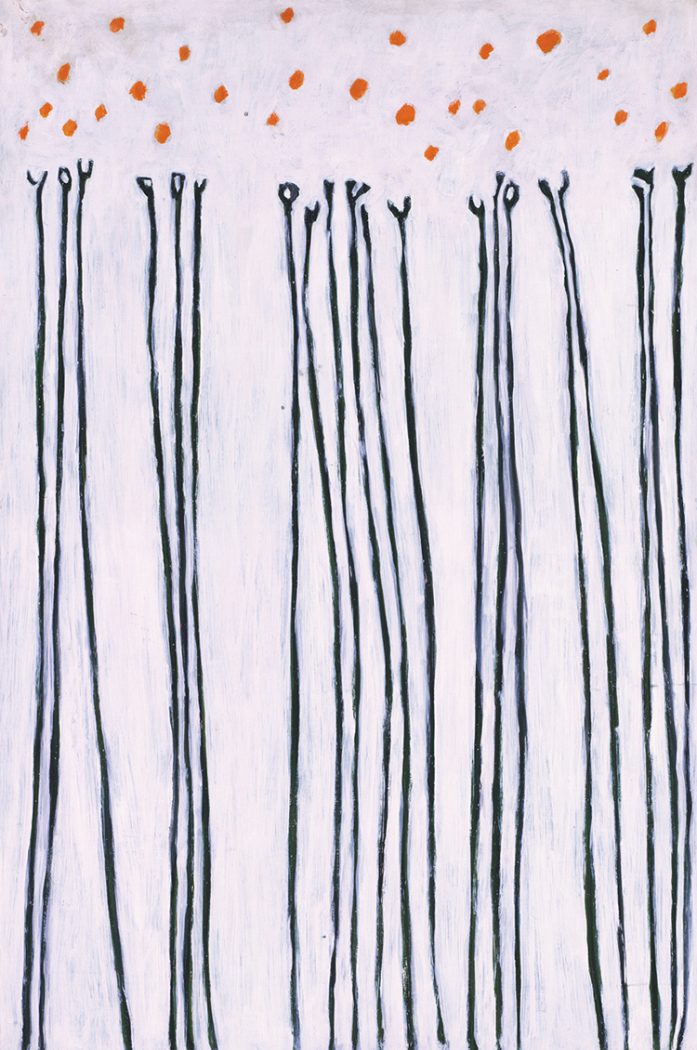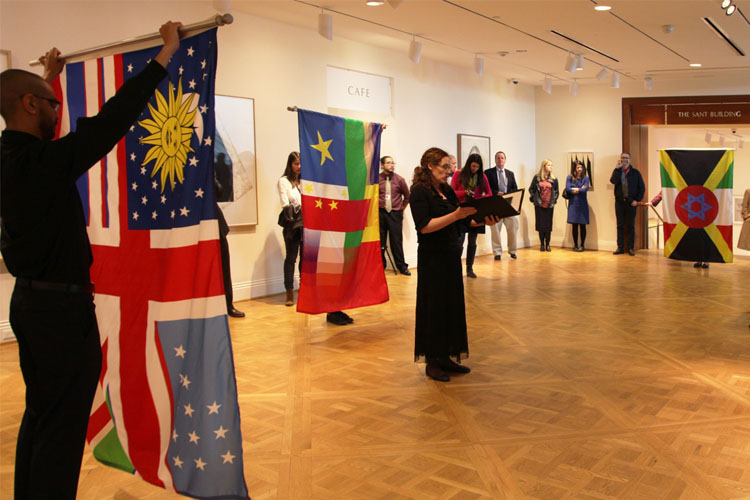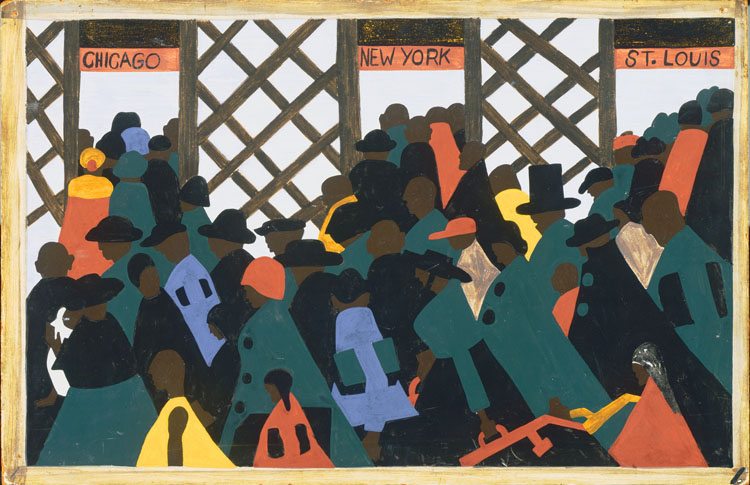Taking inspiration from the major theme of music in Ten Americans: After Paul Klee, we paired 11 staff members with 11 works from the exhibition and asked them to create a playlist in response to their individual artwork. Kathryn Rogge, Manager of Academic Programs & Phillips Music, created her playlist in response to Gene Davis’s “Black Flowers.”

Gene Davis, Black Flowers, 1952, Oil on hardboard, 36 1/8 x 24 1/4 in., The Phillips Collection, Washington, DC, Anonymous gift, 1974 © Artists Rights Society (ARS), New York
Black Flowers got me thinking about polyphonics (multiple voices), with each of the flower stems stretching vertically like an individual voice raising to the sky in song. While polyphonic texture extends to ancient and sacred music from all over the world, it may be found in any composition with overlapping melodies in counterpoint. The “voices” in a polyphonic piece can either be sung by a single voice in overlapping recordings (like Mouth’s Cradle), multiple voices (a whopping 40 voices appear in Spem in Alium) or played on instruments (such as Fables of Faubus); or in this case, painted into the long, slender stems of Gene Davis’s black flowers to create a tension and rising movement evocative of the songs on this list.
Kathryn Rogge, Manager of Academic Programs & Phillips Music
Feeling inspired? Create your own playlist based around works in the exhibition and send it to us at communications@phillipscollection.org and we may feature it on our blog and social media.


